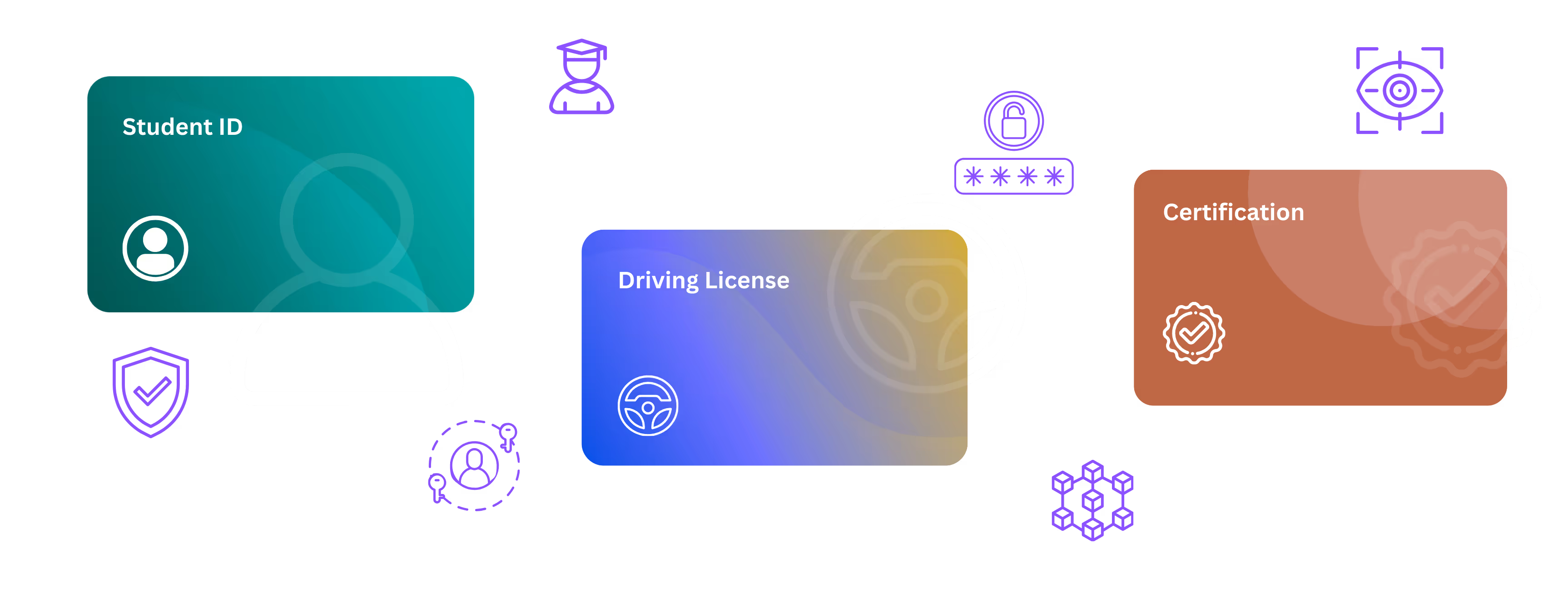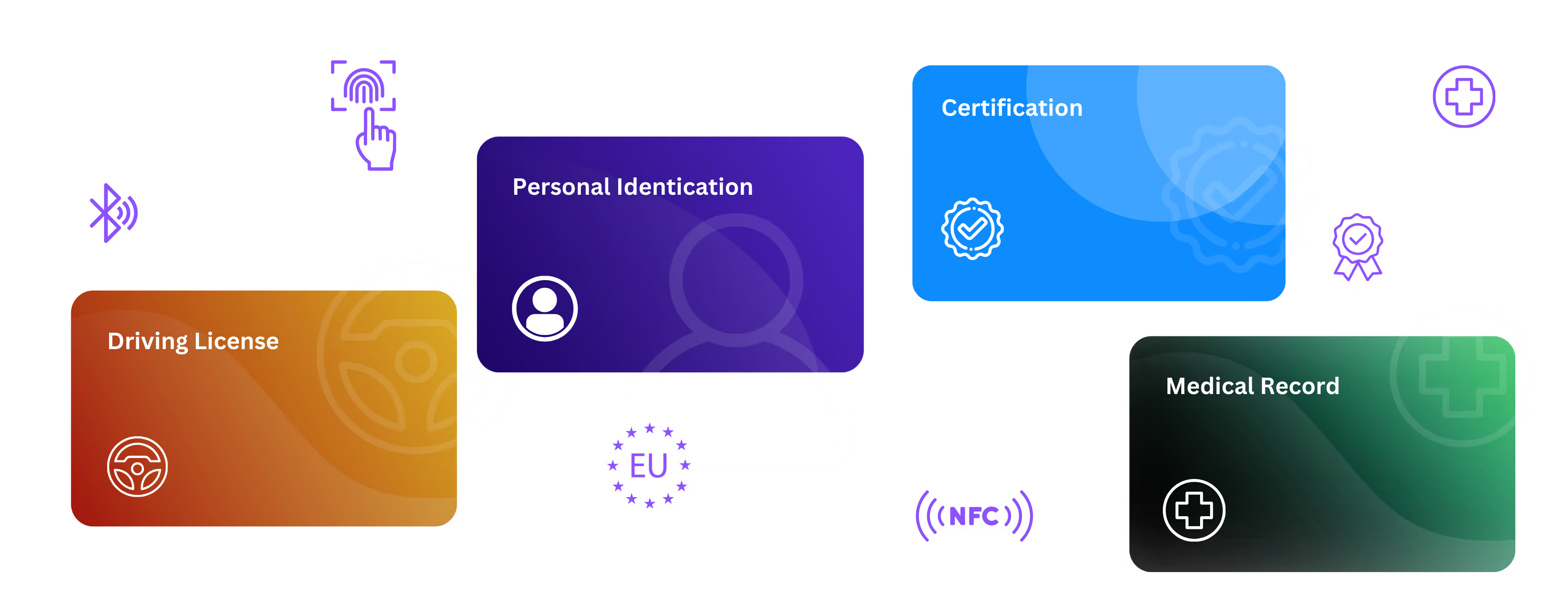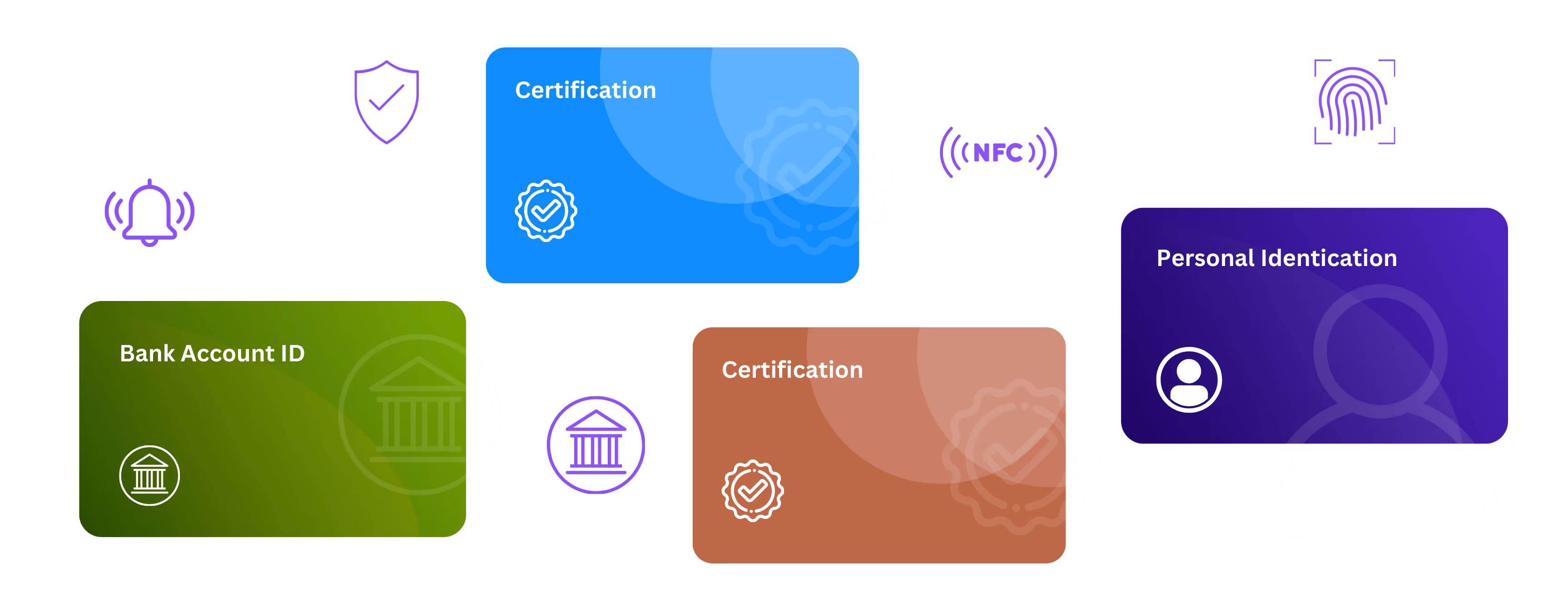Interoperable by Design, Compliant by Default
Credential Formats
Hovi supports verifiable credentials designed for real-world interoperability, regulatory alignment, and future-proof adoption

European Digital Identity
Hovi Supports EU Digital Identity and More
By 2027, the first EU Digital Identity (EUDI) Wallets are expected to roll out across EU Member States. Hovi is built to support this vision from day one. We align closely with evolving technical specifications in the ARF, eIDAS 2.0.
Our infrastructure is designed to evolve in real time, we actively implement support for emerging drafts and test with early EUDI pilot stacks. This enables governments and relying parties to trust that Hovi is future-compliant, privacy-preserving, and ecosystem-ready.
Requirement
Supported by Hovi
OpenID for Verifiable Credential Issuance (OID4VCI) v1.0
OpenID for Verifiable Presentations (OID4VP) v1.0
IETF SD-JWT VC v13
IETF Token Status List (TSL) v15
mDoc (ISO 18013-5)
Issue and Verify credentials signed with X.509 certificates
Real-world credentials, digitally portable
Mobile Documents
Mobile Documents are also known as mDocs and follow ISO standards and enable secure, contactless sharing of identity credentials via QR or NFC. They are designed for mobile wallets and EU Digital Identity integration, supporting data verification and selective disclosure in highly regulated, real-world scenarios.
mDocs are already being adopted across mobility, travel, and government sectors, helping organizations stay ahead of next-gen identity standards.

Capabilities
Underlying standards
mDocs follow ISO/IEC and OpenID standards for secure, mobile-native identity credentials.

ISO/IEC 23220-3
General-purpose mDocs issuance

ISO/IEC 18013-7
Remote presentation of mDLs

OpenID4VCI
OAuth2.0 protocol based issuance

OpenID4VP
OAuth2.0 protocol based presentation

W3C Digital Credential API (coming soon)
Reveal only necessary identity data
Selective Disclosure JWT
SD-JWT enables selective disclosure of claims within a standard JWT structure, allowing users to share only the information necessary for a given context. It’s built for compatibility with OpenID4VC and supports cryptographic proofs of integrity and authenticity.
SD-JWT is ideal for digital onboarding, financial services, and age verification, empowering businesses to request only what they need, and nothing more.

Capabilities
Underlying standards
SD-JWT is built on IETF standards to enable privacy-preserving, selective disclosure of claims.

IETF SD-JWT
Enables selective data sharing

OpenID4VCI
OAuth2.0 protocol based issuance

OpenID4VP
OAuth2.0 protocol based presentation

W3C Digital Credential API (coming soon)
Linked, interoperable digital credentials
JSON Linked Data
Based on the W3C Verifiable Credentials standard, JSON-LD credentials use linked data to ensure interoperability across ecosystems. They support DIDs, cryptographic proofs, and semantic meaning, making them ideal for cross-domain use in decentralized identity systems.
JSON-LD is widely used in cross-border education, employment, and public sector use cases, offering semantic clarity and deep ecosystem interoperability.
JSON-LD is widely used in cross-border education, employment, and public sector use cases, offering semantic clarity and deep ecosystem interoperability.

Capabilities
Underlying standards
JSON-LD credentials adopt W3C and decentralized web standards to ensure semantic interoperability.

W3C Verifiable Credential Data Model (VCDM)

Iden3 Protocol
Encrypted communication for ZKPs/Credentials

DIDComm
Enables secure credential exchange

OpenID4VCI
OAuth2.0 protocol based issuance

OpenID4VP
OAuth2.0 protocol based presentation
Privacy-first verifiable credentials
Anonymous Credentials
AnonCreds use advanced zero-knowledge proof techniques to enable selective disclosure, predicate proofs, and unlinkability. Trusted in privacy-sensitive environments, they are ideal for proving eligibility without exposing personal data, like age or nationality.
Trusted in health, education, and humanitarian settings, they provide unlinkability by design. AnonCreds are powering real-world deployments where user privacy is non-negotiable.
Trusted in health, education, and humanitarian settings, they provide unlinkability by design. AnonCreds are powering real-world deployments where user privacy is non-negotiable.

Capabilities
Underlying standards
AnonCreds rely on cryptographic and messaging standards purpose-built for privacy and unlinkability.

AnonCreds
Privacy-preserving digital credentials

DIDComm
Enables secure credential exchange



.svg)



